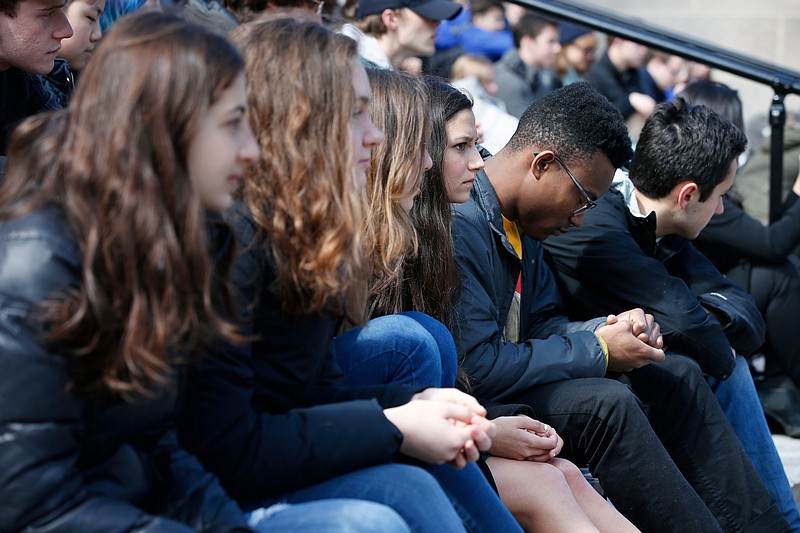Do we reinforce mutual respect in our society? Do we, as an advanced civilization, model and teach behavior that equips the next generation with the skills to be self-reliant, productive, resilient, adaptive and healthy?
Or, as we're beginning to see, is a large segment of our society demanding special treatment, protection from offense and conflict, or isolation from reality? Is it an institutional movement by some to either demand silence from critics and opposition, to shout down one's adversaries or even engage in violence?
When I was a child, born in the early 1960s and raised in a Judeo-Christian, Southern home, respect was at the root of most everything I was taught and learned. Manners were stressed. Timeliness was taught as a form of respect to others. My behavior publicly was to be no different than in front of my parents. My interactions with adults - at school, at the ball fields, in the classroom, in the workplace, at church, in the grocery store - were to be respectful. Period.
If there was a conflict between family members, friends or strangers, there was a process to deal with the situation. The response reflected the magnitude of offense but was grounded in respect.
Today, the twisted notion of freedom has destroyed the idea and practice of mutual respect. Instead of freedom, most engage in the license to do as desired with little or no regard of the rights of others to privacy, property or any process.
How has this manifested itself in our "progressive" society? If you disagree with a policy, you not only organize against said policy, but some march in agitated anger, with threats and true acts of property destruction and violence. If you have a political difference, you don't just work to advance your cause on merit, you aim to destroy your foe's reputation or silence them. In more instances, we're seeing that the two quickest ways to silence one's critics or opponents is to either label them a racist, or another marginal term, or claim to be "offended." Either of these serves to immediately shut down debate, dialogue or advance a discussion.
While we usually apply these comments and opinions regarding mutual respect to the world of politics, apply them today to teenagers and individuals who've never been expected to show mutual respect.
How do we teach our children and young adults to interact with others and deal with rejection, failure or disappointment? More and more, we're seeing the greatest applause is given to those who can mount a great show of opposition, like the #Resist movement, or just walk out on debate. Is this really healthy?
Did you know that while access to weapons is a factor, that there are four additional factors that are very common of mass shooters?
In a Feb. 18, 2017, New York Times analysis and a June 2017 USA Today article, psychiatrists, psychologists and sociologists agreed that shared traits in mass shootings involved individuals, typically men, who had a sense of grievance and expressed resentment and anger, instead of involving mental illness. In 57 percent of mass shootings to date, a member of the shooter's family was involved in the targeted group showing that, as the Times noted, "factors that would lead someone to domestic violence are similar to those that would lead someone to mass killings." Other common identifiers are those who are isolated and particularly narcissistic.
What are we doing to teach conflict resolution? Does a focus on appropriate behavior include a standard of mutual respect? Life's not fair. But life can be lived best with mutual respect.
Robin Smith, a former Tennessee Republican Party chairwoman, owns Rivers Edge Alliance.

